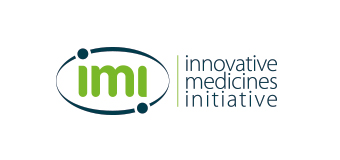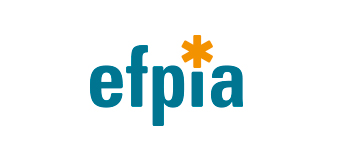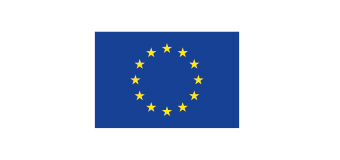Trials@Home celebrated its annual meeting’s extra spring edition
Virtual, 23 June 2021

After nearly 2 years of intense work and study in the field of decentralised clinical trials, more than 120 Trials@Home colleagues met up in a virtual semi-annual meeting in April 2021 to reflect on all the progress made in the project until now. The meeting was held over two days, chaired by Rick Grobbee, Mira Zuidgeest and Kim Hawkins, the Trials@Home overall project leads, and included work packages updates and a series of scientific sessions to stimulate the debate and discuss the future of clinical trials. “While we have a lot to celebrate, we certainly have a lot to accomplish over the next year so let’s keep up the good momentum and, the good engagement”. These words by Kimberly Hawkins, overall industry project lead and WP1 co-leader from Sanofi, served as the starting signal of the event.
DAY 1
The first day kicked-off with a crazy quiz, setting the tone for the rest of the session. “How are you feeling today?”, “How many cups of coffee do you expect to drink during this 3-hour meeting”, “What is your motivation for being part of Trials@Home?” Total icebreaker.

Next up were the project work package updates, where representatives of each working group briefed the attendees on their research’s developments.
WP6 PROMS
Conducted by Annemarijn Douwes and in a very dynamic format, the attendees where asked some questions regarding certain project activities and were guided through the answers. Project milestones such as the first publication (COVID-19 and the Emerging Regulatory Guidance for Ongoing Clinical Trials in the European Union), deliverables submissions and upcoming reporting deadlines where some of the topics addressed. In this sense, partners were encouraged to participate in a brainstorming session about the project’s sustainability plan and bring some ideas and input on how this can be developed. Alongside, updates on the project external boards were given, specifically the scientific advisory board, external stakeholder platform, patient expert panel and upcoming activities was provided.
WP5 CODE
 James Brook and Petra Naster, WP5 leaders, intervened next. The CODE presentation started with a farewell from James and the announcement of his replacement. Fabrizio Forini, “one of the most collaborative senior directors within iQvia and with the best sense of humour” in words of James Brook will substitute him in co-leading WP5 and will contribute with his vast experience with a “European yet global perspective to the project”. WP5 team briefed the consortium on the work done over the past 6 months including the open call webinar that triggered more than 30 vendors to submit their proposals, the patient and investigator survey development with more than 400 responses each and the internal quarterly newsletter release. The leads presented the work ahead of us including strategies to better evaluate, engage and educate society about Trials@Home. The importance of increasing the project’s scientific production was also brought to light.
James Brook and Petra Naster, WP5 leaders, intervened next. The CODE presentation started with a farewell from James and the announcement of his replacement. Fabrizio Forini, “one of the most collaborative senior directors within iQvia and with the best sense of humour” in words of James Brook will substitute him in co-leading WP5 and will contribute with his vast experience with a “European yet global perspective to the project”. WP5 team briefed the consortium on the work done over the past 6 months including the open call webinar that triggered more than 30 vendors to submit their proposals, the patient and investigator survey development with more than 400 responses each and the internal quarterly newsletter release. The leads presented the work ahead of us including strategies to better evaluate, engage and educate society about Trials@Home. The importance of increasing the project’s scientific production was also brought to light.
WP4 EAGLE

Next was WP4, where Tim De Smedt informed the consortium about the progress made in EAGLE during the last year and highlighted the cooperation between the teams to ensure the success of the tasks, given the challenging context. The main highlights where deliverable 4.1 completion, the publication the above-mentioned manuscript COVID-19 and the Emerging Regulatory Guidance for Ongoing Clinical Trials in the European Union and the preparation of two upcoming meetings: one with EMA’s innovations task force in May and an EAGLE meeting at the beginning of June. “The only constant is change”, stated De Smedt closing his presentation with an introduction of the upcoming work package activities.
WP3 PILOT
 PILOT co-leader Megan Heath gave a brief overview on the pilot study’s next steps and the latest decisions taken on how the study is going to be structured (Diabetes as clinical area and designed in a 3-arms study). “What is clear so far is how interwoven the whole project is and to see the different WPs with PILOT coming up in conversations and sitting in the centre of many of them”, stated Heath. Currently, the team is working on the study protocol, the overall budget, country choices and the detailed definition of KPIs.
PILOT co-leader Megan Heath gave a brief overview on the pilot study’s next steps and the latest decisions taken on how the study is going to be structured (Diabetes as clinical area and designed in a 3-arms study). “What is clear so far is how interwoven the whole project is and to see the different WPs with PILOT coming up in conversations and sitting in the centre of many of them”, stated Heath. Currently, the team is working on the study protocol, the overall budget, country choices and the detailed definition of KPIs.
WP2 TECH

TECH introduced another change in the Trials@Home line-up: Kai Langel (Janssen) leaves the team and is substituted by Rebecca Jackson from the same company. Sten Hanke and Jaap Trappenburg conducted a general WP status overview including an overall progress of the work and updates. One of the main achievements is the finalization of the internal tech assessment which resulted in the selection of ClinPal as main technology provider. In this sense, the team took advantage of the opportunity to request some input/solutions/suggestions from the consortium on certain topics of interest for the working group that were not met by the RFP including the patient helpdesk/concierge, the continuous glucose monitors, the starter kit/ancillary services and the HbA1c lab services. The briefing concluded with an introduction of the WP next steps including upcoming two publications (Scanning process and the quality assessment), deliverable finalisation and the transition discussion from assessment BBBs to implementation VBBs (Vendor Building Blocks).
WP1 BEST
 Isla Mackenzie, BEST co-lead from University of Dundee, provided a summary on the revision of prior and ongoing experiences with RDCT and the provision of best practices and recommendations for its implementation into PILOT WP. The team also informed about the development of several manuscripts including an approved one on “Stakeholders’ perceptions of Remote Decentralised Clinical Trials (RCDTs): a qualitative analysis” and a draft publication on systematic literature review.
Isla Mackenzie, BEST co-lead from University of Dundee, provided a summary on the revision of prior and ongoing experiences with RDCT and the provision of best practices and recommendations for its implementation into PILOT WP. The team also informed about the development of several manuscripts including an approved one on “Stakeholders’ perceptions of Remote Decentralised Clinical Trials (RCDTs): a qualitative analysis” and a draft publication on systematic literature review.
DAY 2
Day 2 was distributed in 2 breakout sessions, one organised by WP TECH providing an “Overview of the Trials@Home trial setup” and the second one, organised by WP EAGLE, a landscape session, on “How to keep the RDCT model going after COVID19?”
The TECH session, organised by Linda Rutgrink, Tanja Keiper, Rob Luscombe, Bobby Davey and moderated by Sten Hanke and Rebecca Jackson, provided an overview of the foreseen pilot study and the implementation with technologies selected from the internal RFP and external open call. The focus of the presentation, attended by more than 70 colleagues, made clear how the process of the pilot is supported by technology and the interaction with the patients as well as the investigators. Details were given about the recruitment procedure planed. The session was supported by Emil Hoeck and Nathalie Nicholson (Signant Health), Piers Sutton (Investis Digital), representatives of two potentially selected technology providers, focusing on the RTMS process as well as on the patient engagement technologies.
The other parallel session, with around 40 attendees and organised by Helga Gardarsdottir, it revolved around the implementation of innovative approaches and use of new technologies to support the conduct of clinical trials, specifically in a context like the COVID19 pandemic. In this session, key stakeholders reflected on the current developments, opportunities, and future needs within the clinical trial landscape in relation to RDCTs. The team also invited a person living with diabetes to explain the differences in the interaction between patients and doctors in large cities and rural areas. “There are still many challenges with this type of trials, but with the collaboration of all stakeholders, the implementation of a good RDCT system is possible”, concluded Helga Gardarsdottir.
The last part of the semi-annual meeting was the “Viva Variety networking cocktail”, a dynamic and relaxed activity where the consortium members could (re)connect, although virtually. Organised by Petra Naster and hosted by Kim Hawkins, Trials@Home colleagues were amused by several creative performances including guitar playing, celebrities Lego, pets and slippers competition and an acro-yoga video.
Again, Trials@Home was unable to hold a F2F meeting, given the current circumstances but hopefully the team can meet up again later in 2021 to share developments of their work, thoughts, ideas and see each other again.
All the slides and recorded sessions are available on MPP.
(Available for consortium members only)
Download your copy of this report here



This project has received funding from the Innovative Medicines Initiative 2 Joint Undertaking under grant agreement No 831458. This Joint Undertaking receives support from the European Union’s Horizon 2020 research and innovation programme and EFPIA.
Notes for editors – not for publication
If you would like more information, please contact the spokesperson at the UMC Utrecht.
Joris Prinssen: +31 6 2571 0234
press@umcutrecht.nl
